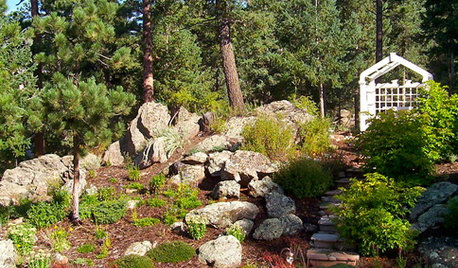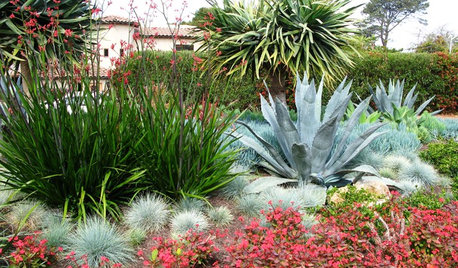Can you help me interpret the soil test results
teka2rjleffel
12 years ago
Related Stories

BOOKSCan Tidying Up Result in Life-Changing Magic?
Organizing phenom Marie Kondo promises big results — if you embrace enormous changes and tough choices
Full Story
FARM YOUR YARDHow to Get Good Soil for Your Edible Garden
The nutrients in your soil feed the plants that feed you. Here are tips on getting it right — just in time for planting season
Full Story
GARDENING GUIDESHave Acidic Soil in Your Yard? Learn to Love Gardening Anyway
Look to acid-loving plants, like conifers and rhododendrons, to help your low-pH garden thrive
Full Story
COLORSpeed-Dial Color Selection to Get the Best Result
You’ve belabored your color decisions and are still stuck. Here is how to evaluate your space and make choices that are right for you
Full Story
GARDENING GUIDESHow to Stop Worrying and Start Loving Clay Soil
Clay has many more benefits than you might imagine
Full Story
GARDENING GUIDESGardening Solutions for Dry, Sandy Soils
Has your desert or beachy site withered your gardening creativity? Try these ideas for a beautiful, easy-care landscape
Full Story
GARDENING GUIDESThe Poop Scoop: Enrich Your Soil With Good Old Manure
Get over the ick factor already — this natural super-ingredient for soil has so many benefits, you'll wonder why you ever went chemical
Full Story
GARDENING GUIDESGardening Solutions for Heavy Clay Soils
What’s a gardener to do with soil that’s easily compacted and has poor drainage? Find out here
Full Story
HOUZZ TOURSHouzz Tour: Battling the Tides Results in a Wondrous House on the Water
A complex construction effort pays off big-time with unobstructed views of Blue Hill Bay in Maine
Full Story
GARDENING GUIDESGrow a Beautiful Garden in Alkaline Soil
Got alkaline soil? Learn how to manage it and the many beautiful plants that will thrive in this ‘sweet’ soil
Full StorySponsored
Columbus Area's Luxury Design Build Firm | 17x Best of Houzz Winner!
More Discussions






marshallz10
reg_pnw7
Related Professionals
West Milford Landscape Architects & Landscape Designers · Mitchellville Landscape Architects & Landscape Designers · Piqua Landscape Architects & Landscape Designers · Canton Landscape Contractors · Brockton Landscape Contractors · Cicero Landscape Contractors · Cockeysville Landscape Contractors · Fort Payne Landscape Contractors · Gainesville Landscape Contractors · Lakewood Landscape Contractors · Sun City Center Landscape Contractors · Kansas City Decks, Patios & Outdoor Enclosures · Livingston Decks, Patios & Outdoor Enclosures · West Hills Decks, Patios & Outdoor Enclosures · Decks, Patios & Outdoor Enclosureswbonesteel
teka2rjleffelOriginal Author
Kimmsr
pnbrown
teka2rjleffelOriginal Author
Kimmsr
pnbrown
teka2rjleffelOriginal Author
reg_pnw7
wayne_5 zone 6a Central Indiana
teka2rjleffelOriginal Author
pnbrown
teka2rjleffelOriginal Author
ifraser25
teka2rjleffelOriginal Author
reg_pnw7
teka2rjleffelOriginal Author